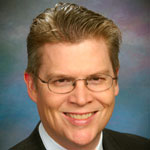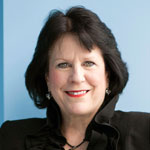Steve Hill veered away from his plans to become a forester even before he graduated from the University of California, Berkeley. But, as a veteran of human resources who spent more than 30 years helping employers to more effectively and efficiently provide health care to their workers, and as the current head of the Washington State Department of Retirement Systems, Hill has spent plenty of time clearing paths through industries notorious for being complex, dense, and tough to navigate.
In his first HR management position, Hill quickly learned that when it came to delivering health benefits to employees, it was necessary to dive in and understand what was going on. “It’s very complex and driven by a variety of factors,” he says. “It’s a sector of the economy that has enormous variability, waste, and defects.”
But Hill’s ability to restructure procedures and deliver results has kept him in the business longer than he thought it would. Back in 2004, Hill was 56, a 32-year veteran of his then-employer, Weyerhaeuser, and ready to leave a job that had him more than a little weary. After looking into a couple of nonprofit executive roles, taking on some consulting positions, and joining a number of boards, Hill got a call from Washington’s new governor, Christine O. Gregoire, who had heard from some colleagues that Hill might be available.
Talking Leadership With
Steve Hill
How do you acknowledge independent achievement in a collaborative environment?
By reinforcing team goals. And when I hear from a customer that appreciated how an employee team member handled a particular situation, I’ll bring that to [the employee’s] desk and make a little bit of a scene. I stay on the lookout for recognition opportunities.
What is the first step to getting your team on board with a new idea or initiative?
Leaders draw pictures of better futures, and I think those pictures have to be vivid and have granularity. You have to describe how much better the future would be if you make this change.
When does a meeting need to be face-to-face?
When emotion or stakes are high. E-mail and voicemail are useful for news, not for gaining alignment, empowerment, or building trust.
When do you abandon a course of action?
When the goal is out of reach within the available resources—often not an easy call, requiring intuition as well as analysis.
What have you learned about accepting feedback?
It is not easy but is essential for learning, and is more impactful and useful in a conversation than on a survey form. Having a clear sense of personal mission and goals gives one a foundation to receive and effectively use feedback.
Hill had joined Weyerhaeuser—a large timber, wood, and paper products company that employed tens of thousands across the nation—after graduating from business school at the University of California, Los Angeles. At first, he worked in the company’s wood products division as a business analyst. Seven years into his role, at age 30, Hill spent a year as a White House fellow, working as an assistant to the then Secretary of Energy, James Schlesinger. When he returned, Weyerhaeuser convinced him to join their human-resources organization. The company was facing “a number of strategic challenges” in HR, Hill says, reporting that he soon found himself navigating the many obstacles Weyerhaeuser faced when it came to providing health benefits. One of the biggest surprises, Hill says, was the variability in health care across regions.
“We were operating in most states in the US, with a couple of very big operations in a dozen states,” he recalls. “And the amount of difference in the way health care was delivered and what it cost was mind-boggling and eye-opening.”
In California, for instance, mental-health care accounted for a huge segment of the health-care budget, whereas in Arkansas, there was hardly any expenditure at all. Yet, Arkansas averaged a much longer length in hospital stays. “We were a large employer; at one point we had 60,000 people in the US,” Hill says. “But in the health-care world, we were still just a cork floating in a very big sea, and most of the trends overwhelmed us.”
Over the next 23 years, Weyerhaeuser made a number of changes to the company’s benefits infrastructure, including providing education, increasing deductibles, outsourcing claims processing, and more, all in the attempt to improve health-care delivery. Weyerhaeuser also underwent five mergers, which Hill describes as “horrendous tasks” that involved incorporating new employees into new benefit plans. In 2003, as the company concluded another large merger integration, Hill decided it was time to move on to other challenges.
Though Hill was initially satisfied with retirement, he was intrigued by Governor Gregoire’s proposal, and took her up on the job. Since, he has enjoyed the challenges and autonomy that comes with being a cabinet secretary, spending five years as the head of the Health Care Authority before focusing solely on the Department of Retirement Systems. “As long as you stay out of trouble, you’re given a lot of flexibility within the budget to run your own organization,” Hill says. “So I’ve had fun over the last eight years being able to significantly change our strategies and organization dynamics.”
Under Gregoire’s leadership, Hill was able to push through three new pieces of legislation that have significantly improved the sustainability of the state’s pension system, including new restrictions on early retirement, decreasing cost of living expenses, and changing the way higher-education pensions were integrated with public plans. Before that, as head of the Health Care Authority, he came up with a new health strategy, focused state payment decisions on evidence-based medicine, and changed the lineup of health plans offered to state employees.
With Gregoire having left office earlier this year, Hill has finally been able to solidify his own retirement plan. While he plans to remain on the various boards of directors that he currently sits on, and wants to engage in youth-oriented nonprofits, he’s also ready to spend time with his grandchildren—not to mention his camera and bike. As Governor Gregoire said in a proclamation thanking him for his service to the state, “Steve will soon have a second chance to ‘get it right’ on retirement.”

